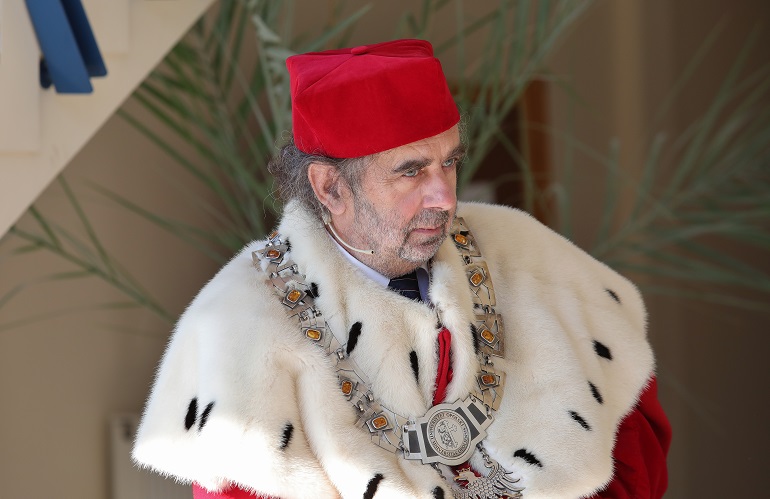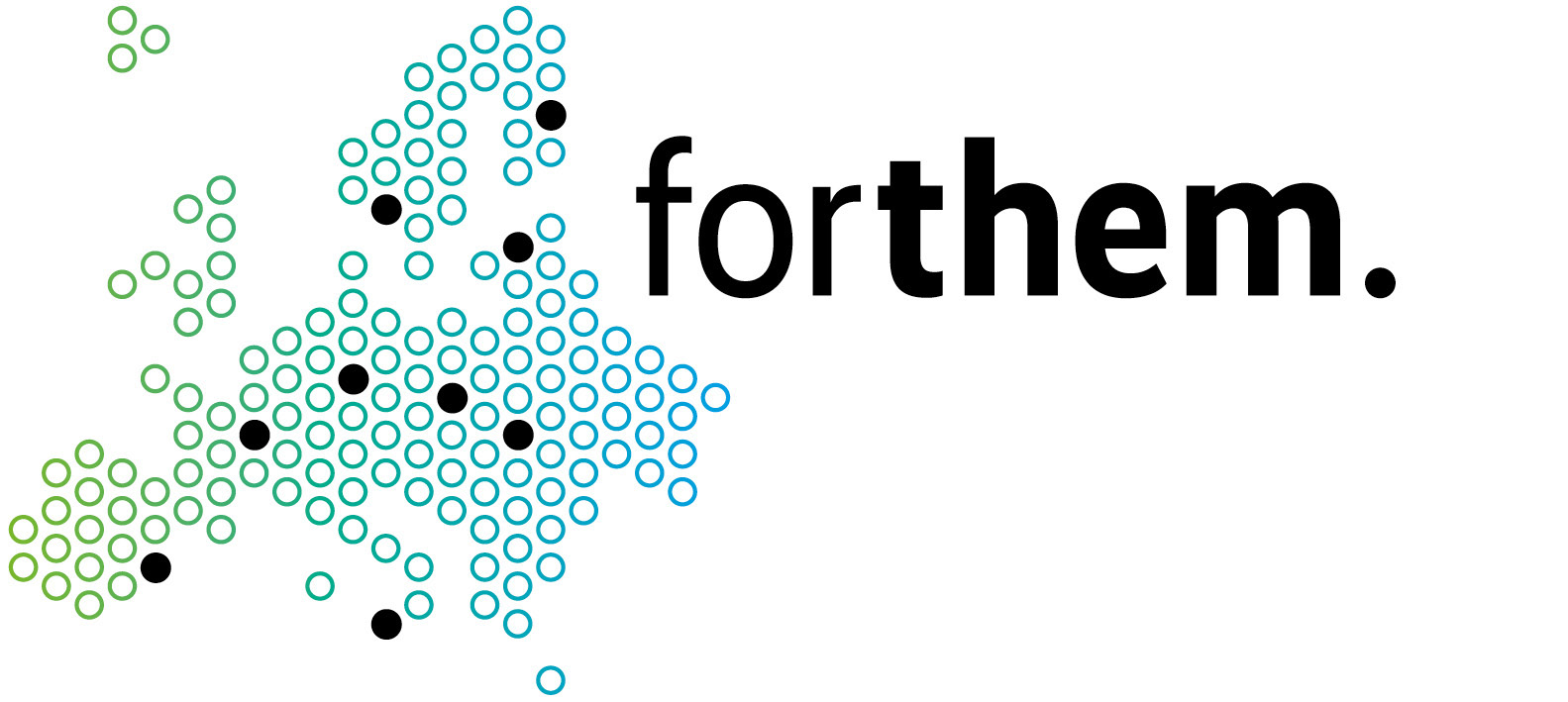University Day in the shadow of the war

“I wish the academic community fulfilment of professional and private plans, creativity, constant enthusiasm, and rewarding teaching and research work. And let's stand by Ukraine!” says the Rector of the University of Opole, Professor Marek Masnyk, in an interview on the occasion of the Day of the University of Opole.
Beata Łabutin: We are talking on the eve of the Day of the University of Opole and its 29th birthday. However, the celebration will take place in the shadow of the war in Ukraine... As an academic community we cannot ignore it.
Rector of the OU, Prof. Marek Masnyk: “No one can remain indifferent to this tragedy. The university is ready to receive refugees. We have prepared almost 200 places for them in halls of residence, and we are providing all necessary supplies, food. We hope that Ukrainian students who went home for the inter-semester break will be able to return to study with us, although I am concerned about the male students, as they are of conscription age, and we know what this means now in Ukraine. We also expect that those students who are able to return will come to us with their families. We want to help refugees. We have given them all the available places.
The University Day is a good time for stock-taking and making forecasts. The year 2022 is a year of evaluation for universities. How will it be conducted at our university? Are you confident about its outcome?
“On 21 February, during a meeting of the evaluation team, we discussed the last disciplines to be evaluated with respect to the past five-year period. We finally decided that seventeen disciplines will be evaluated. These are: history, literary studies, linguistics, environmental engineering, mining and power engineering, medical sciences, health sciences, economics and finance, political and administrative sciences, law, pedagogy, psychology, chemistry, information technology, biological sciences, physical sciences, theology, fine arts and art conservation.
Last year was very busy for the staff and directors of the institutes, for all those responsible for evaluation, and above all for Rector Jacek Lipok, supported by the evaluation team established a year ago. I am satisfied with the work we have done. What speaks of its quality are the values we have achieved - I am now referring to the first evaluation criterion, i.e. the values obtained for the publication slots of the persons subject to evaluation (a publication slot, or unit share, is a measure of an author's share in a publication; a publication with a single author fills one entire slot - ed.) As far as this criterion is concerned, in my opinion fourteen or even fifteen disciplines have a chance of obtaining a B+ or even A grade.
The above criterion, however, constitutes only 70 per cent of the parametric score. 20 percent of potential points are given for participation in projects and winning grants, and the rest - for the impact of the discipline on the social environment. Therefore, it is difficult to predict the final outcome of the evaluation.
Most optimistically, I would expect category A for two or three disciplines, category B+ for eight to ten, and category B for three to four.
Which disciplines are most likely to get a high category?
The disciplines for which I am counting on category A not only have high scores when it comes to the first parametric criterion, but they can also demonstrate serious project and grant achievements. I am thinking here of political science and social communication and linguistics. These two disciplines are implementing two large international projects - FORTHEM and FIT FORTHEM. They give high scores in the second criterion of evaluation.
Also biology, in my opinion, is close to category A. The same applies to chemistry. The latter discipline has - as far as the first evaluation criterion is concerned - similar results to the Wrocław University of Technology and we are only slightly behind the achievements of the Adam Mickiewicz University in Poznań. This means a lot and confirms the high position of these disciplines in their environment. Obviously, the centres I mentioned - Wrocław University of Technology and Adam Mickiewicz University - have a significant advantage when it comes to grants and projects. We cannot match them in this respect. In general, however, I am satisfied with the level with which we have entered the evaluation.
I would add that our Doctoral School is safe. In the near future, we will add another discipline to it - law.
A part of the academic community fears that the Ministry's evaluation of research under the new rules may be used for purposes not related to improving the quality of teaching and scientific research, but simply to sift out the weaker ones.
Indeed, I am a little concerned about the fact that the Minister of Education and Science, and not the Committee for Scientific Evaluation, will have a strong influence on the determination of reference values. However, I do not want to believe that it will be the minister who decides who survives and who perishes, as someone once said, although he will certainly have an influence on the final outcome of the evaluation.
I still believe that the minister's role should not be to search for whom to plunge, but for whom to help so that they do not lose their full academic status. The more so, as the evaluation according to the new criteria takes place for the first time and universities with completely different potential are evaluated according to the same criteria. For instance, if we compare the evaluation values of the Polish Academy of Sciences, where only scientific research is conducted with no didactics at all, with a university like ours, the advantage of the former is enormous. In such cases, bringing the evaluation down to a common denominator will not be reliable at all.
A year ago, when I asked you to assess the first year since the merger of the UO and the State Medical School, you said that it was too early, that the assessment would not be complete. What is it like today? Are we already a fully integrated entity?
This assessment may be more complete today, but still not full. Firstly, let us remember that the consolidation process took place under conditions of pandemic, which greatly complicated issues that would not normally have to be so complicated. Secondly, the consolidation of two entities with different history and organization culture required finding everything that could unite us and putting aside everything that divides us, and these things, after all, are not easy. A full assessment of this process is still at least a few years away. I think that the day when students of the Faculty of Health Sciences will be able to say that they began their studies at the University of Opole and are completing them there will be a kind of finishing line for the consolidation.
A year ago you also said that the quality of teaching at our university had dropped, which was understandable as we had to learn to function in a world of remote learning due to the pandemic. At the time, you gave a three-plus mark for remote teaching and working. Today, when part of the current academic year has been spent working remotely, which has already become familiar, and part working on-site, will this mark be higher?
Definitely yes, and this applies to both academic staff and students. We have all become accustomed to remote teaching and using the necessary technologies, and we have eliminated technical problems. Today I would give remote teaching a good grade, at the very least. Let us remember, however, that in the last academic year we had mainly traditional classroom teaching, which was a clear advantage for both staff and students. My regulation allowed only those classes with more than 40 participants at a time to be conducted remotely. Laboratories and small group classes were held in the on-site mode, which undoubtedly had a great impact on improving the quality of teaching and teacher-student contact.
The university is now in its 29th year. What is going to happen?
In September this year, we will complete the Pomology project. It is currently being handled by our Office of Research and Project Management with great success.
The University Centre for Civilisation Diseases - another project we are implementing at the University Hospital.
Yet another project, worth EUR 5.3 million, concerns the implementation of the Opole Centre for Structural and Materials Research. We have already prepared an application to the Marshal's Office.
We are still waiting for a possibility to start building a facility in Oleska Street for our IT staff. However, this will also require European funds from the National Reconstruction Plan, which is still in doubt.
We are also going to renovate two floors of the former medical school building in Katowicka Street to accommodate, inter alia, the Centre for Modern Technology and teaching rooms for the nursing programme.
Now maybe on a lighter note. in your statement for one of the internet portals you said that you considered the creation of the Uni Opole volleyball team and the team's qualification to the Tauron League as your success. Are you satisfied with the attitude of the team? Do you attend all the matches?
I have been to all but one. I had to attend the academic year inauguration ceremony at a friendly university then. Yes, I am very pleased with the girls' attitude. I created this team and I was its voluntary chair for the first two years. Now I have left in good hands - Maciej Kochański is doing great in this role, as well as vice-president Anna Monkiewicz. I would like to thank them very much for their excellent and committed work. The girls are fighting, they show their claws and they don't have any complexes as the newcomers. It is also satisfying that we have managed to create an atmosphere of genuine support from local business around the team. This year, we want to build a "50 Club" bringing together authentic friends of the project, next year it may be a "100 Club", which will allow us to guarantee financial stability. This year I have a right to feel deeply disappointed with the city's commitment to the Uni Opole team - the financial support for the team is at the level of sports clubs in the second division, and we do play in the first division! At the same time, the marketing value that our team brings to Opole cannot be overestimated. As well as for the region. We promote not only the university, although we are known as Uni Opole, but also the city and the voivodeship.
What would you like to say to the academic community on the occasion of the upcoming holiday?
We are approaching the 29th birthday of our university. As usual, there will be a ceremonial meeting of the Senate, during which two honorary doctorates will be conferred upon Prof. Jana Hoffmannova and Prof. Julian Kornhauser. This act was supposed to mark the 70th anniversary of our Polish Studies chair, which occurred two years ago, but due to the pandemic we are only able to celebrate it now.
I wish the academic community fulfilment of their professional and private plans, creativity, unremitting enthusiasm, and satisfying teaching and research work. And let us stand by Ukraine!

